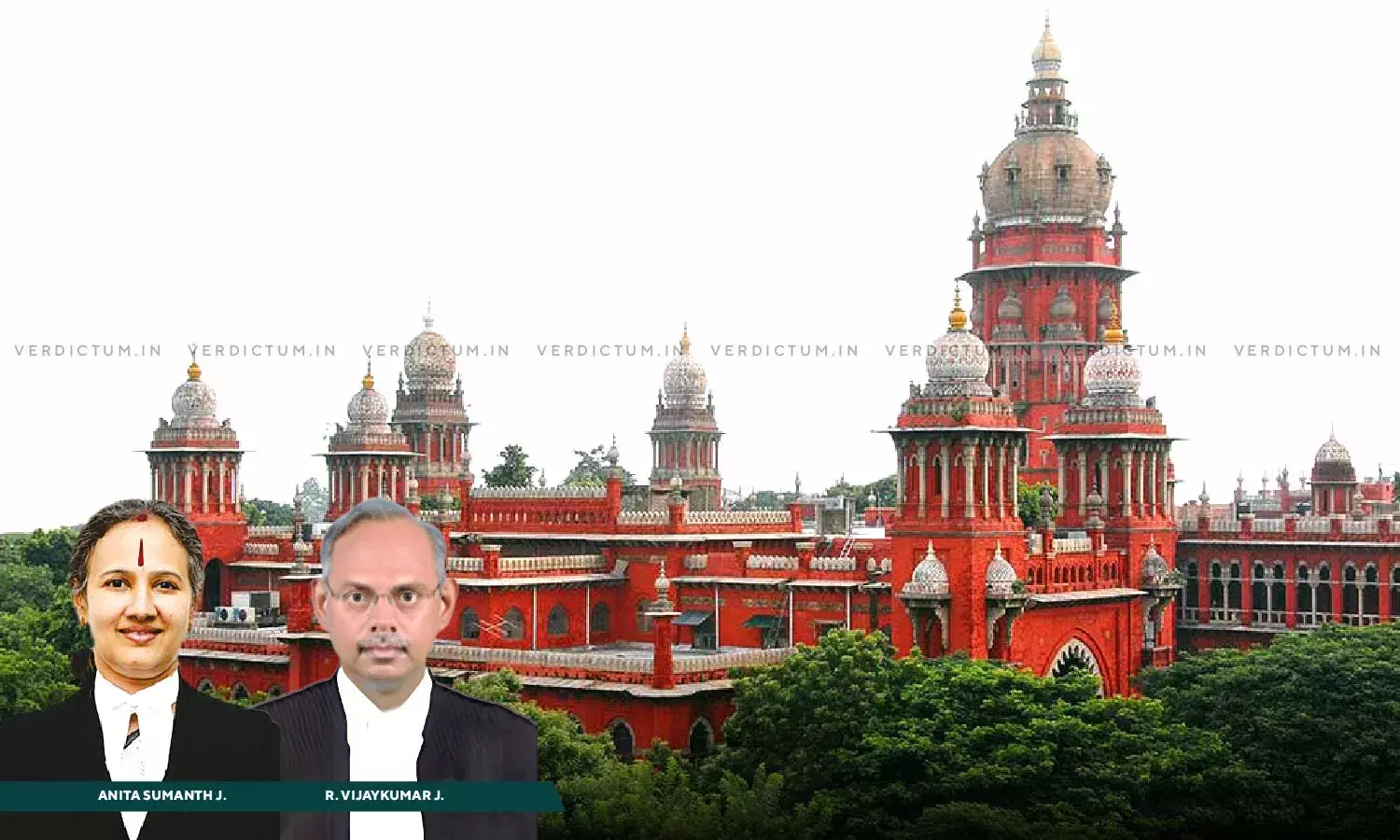Mandamus Be Issued Only Upon Person Seeking Such Relief Establishes Conclusive Existence Of Fundamental Right & Its Violation Thereof: Madras HC

While setting aside the Mandamus issued by the Single Judge upon the request of the petitioner, the Madras High Court clarified that the issue of mandamus under Article 226 of the Constitution of India can only be upon the person seeking such relief, establishing conclusively and concurrently, both the existence of a fundamental right, and the violation thereof, by the State.
A Division Judge Bench of Justice Dr. Anita Sumanth and Justice R. Vijayakumar observed that “the rejoinder in this case, filed in 2014 more than adequately establishes that the writ petitioner has come to Court with unclean hands. He was eminently unfit, as a Panchayat Councilor, to have held a government post. Not content with suppressing that fact, he has the audacity to state that the school ought to have, at best, issued a show cause notice, which it did not do. The writ Court has accepted these indiscretions and engaged in the exercise of computing the sitting fee earned by the writ petitioner and reducing the same from the benefits to be paid by the school. All this, on the premise of severely disputed facts and documents”.
Advocate V. Om Prakash appeared for the Appellant, whereas Advocate S. Bharathykannan appeared for the Respondent.
The brief facts of the case were that the respondent had filed a case against the petitioner under which he claimed to be a part of the school as a PG Assistant (Political Science) teacher and rendered services for several years, but was not paid any salary for his services. The Single Judge issued a Mandamus against the Petitioner for providing all monetary benefits to the Respondent for the said years. The Respondent claimed that there were only 5 posts for the position of PG Assistant (Political Science) teacher and the Respondent filled no vacancy. Hence, the petitioner approached the Division Bench seeking relaxation from the issued Writ.
After considering the submission, the Bench noted that there are several disputed facts among a plethora of disputed facts that are involved in this matter as there is no difference found in both the appointment letters issued to K. Vijayakumaran for the post of Headmaster and the letter issued to N. Nalinakumaran for the post of PG Assistant (Political Science) teacher.
The Bench remarked,” It is always open to the writ Court to issue mandamus to a petitioner directing the respondent to deal with the representation of the writ petitioner in line with the principles of natural justice, and in the process, iron out and settle all inconsistencies and disputes in factual matrices.”
The Bench stated that the validity of the appointment order held by the writ petitioner is nowhere specifically contested by the school.
“The validity of that order has certainly been disputed from the start, nowhere has the school expressly denied the signature on the order or stated that said signature was forged”, added the Bench.
The Bench also stated that there was dispute about proper manager/correspondent for the schools hitherto run by Sahadevan Nair including the schools where the petitioner claims to have rendered services.
The High Court pointed that though “an oral submission has been made by counsel to the effect that the litigation between the relatives of Sahadevan Nair have travelled to the Supreme Court and ended in favor of his nieces who are now in the management of the schools, the court is unaware of these facts and, in any event, unconcerned with the same”.
Accordingly, the High Court allowed the petition.
Cause Title: The Manager, Government Aided Secondary School v. N. Nalina Kumar and Ors. [Neutral Citation: 2023/MHC/4416]
Click here to read/ download the Judgment

